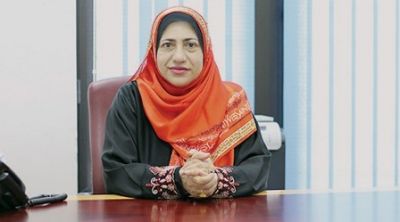
Oman Observer
MUSCAT, Research and innovation, which are key to supporting Oman’s development and sustainability, form core pillars of Sultan Qaboos University’s (SQU) mission to society. In pursuit of this goal, says Dr Rahma al Mahrouqi, SQU’s Deputy Vice-Chancellor for Postgraduate Studies and Research, the university is now focusing on helping the country achieve Oman’s Vision 2040, which was created under the supervision of His Majesty Sultan Haitham bin Tarik. Vision 2040 highlights the necessity of mobilising Oman’s resources in the service of education, research and innovation.
“This is a pathway that the world’s most innovative and research-intensive countries follow, including in times of economic uncertainty,” Dr Rahma said in an interview. The World Bank’s 2019 data for research and development expenditure lists countries such as Japan, South Korea and the United States as being in the top 15 in terms of highest levels of research expenditure. “All these countries have pursued development pathways in which a commitment to research and development assumes a central role, with this being especially true of those periods when they have encountered significant social and economic challenges,” she said.
Many private organisations around the world invest heavily in research and development, including through their own research and development departments, consultancies, and funded research projects and programmes carried out at universities and research centres. It is quite common in many research-focused countries, she points out, private sector companies engage university researchers in projects that are beyond the capabilities, in terms of expertise, funding, or required equipment. They also do it with their own research departments, or even fund the establishment of specialised research chairs and centres to further their research agendas at host universities.
Another way in which private companies support research is through off-set programmes which are in place in around 80 countries, and focus on ensuring that large government contracts awarded to international companies result in spending on development initiatives in the host country.
Investments in research and innovation can play a major role in achieving these goals while also serving the national priorities of Vision 2040.
Government agencies like the Technology Research Council (TRC) in Oman offer grants to researchers working on projects that have been identified as being of potential value to a country and its people.
In addition, it is quite common for huge grants to be assigned to teams of researchers working in universities, although industry-based experts are also often involved. Research council funding ensures that complex research projects can be successfully pursued by research teams.
Through research council funding, many universities offer direct funding for research projects carried out by their faculty and staff. Funding programmes at Sultan Qaboos University include the Internal Grants programme, the Deanship of Research Grants, and His Majesty Sultan Qaboos’s Trust Fund for Strategic Research.
According to Dr Rahma, extending financial support to research and innovation-focused universities can result in numerous social and economic benefits.
“These not only include the creation of jobs, both directly and indirectly, and the impact of university research spending, but also the generation and exploitation of intellectual property, university start-ups, spin-offs, and so on,” she said.
Sultan Qaboos University is uniquely placed to drive the country’s research-based economic growth and development in similar ways to the examples detailed above.
“Supporting SQU’s engagement in research and innovation will ensure that the university plays a key role in Oman’s transformation to a knowledge-based society characterised by a commitment to research and innovation, and that the institution serves the strategic development goals of Vision 2040,” Dr Rahma al Mahrouqi said.